JOSEPH LEOPOLD EDLER VON EYBLER
Quintett II / Sextett II D Dur
Quintet II / Sextet II D major
Quintette II / Sextuor II Re majeur
Quintetto II / Sestetto II Re maggiore
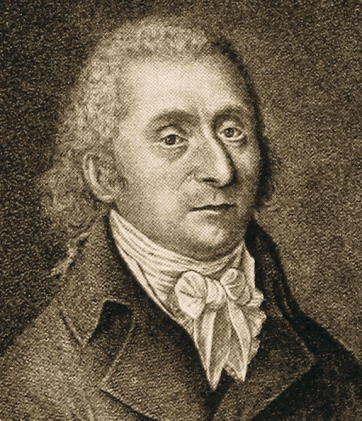
Viola d'amore, Violine, Viola,
Violoncello und Violone (Violoncello II) -
zwei Violen, Violine, Viola, Violoncello und Violone (Violoncello II)
Viola d'amore, Violin, Viola, Cello and Violone / Double bass (Cello II)
-
two Violas, Violin, Viola, Cello and Violone / Double bass (Cello II)
Viola d'amour, Violon, Alto, Violoncelle et Violone / Contrebas (Violoncelle
II) -
deux altos, Violon, Alto, Violoncelle et et Violone / Contrebas (Violoncelle
II)
Viola d'amore, Violino, Viola, Violoncello e Violone / Contrabbasso (Violoncello
II) -
due Viole, Violino, Viola, Violoncello e Violone / Contrabbasso (Violoncello
II)
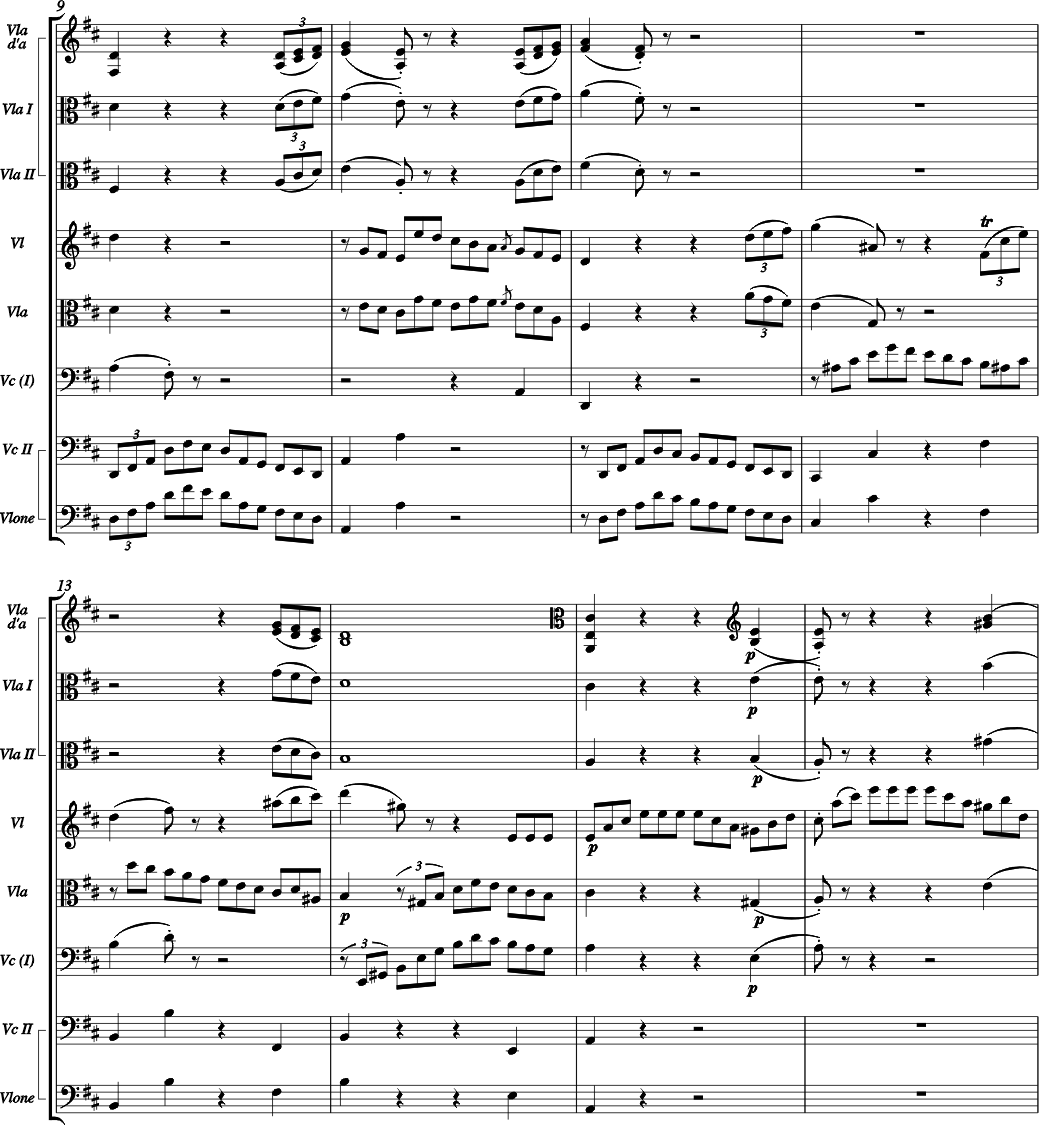
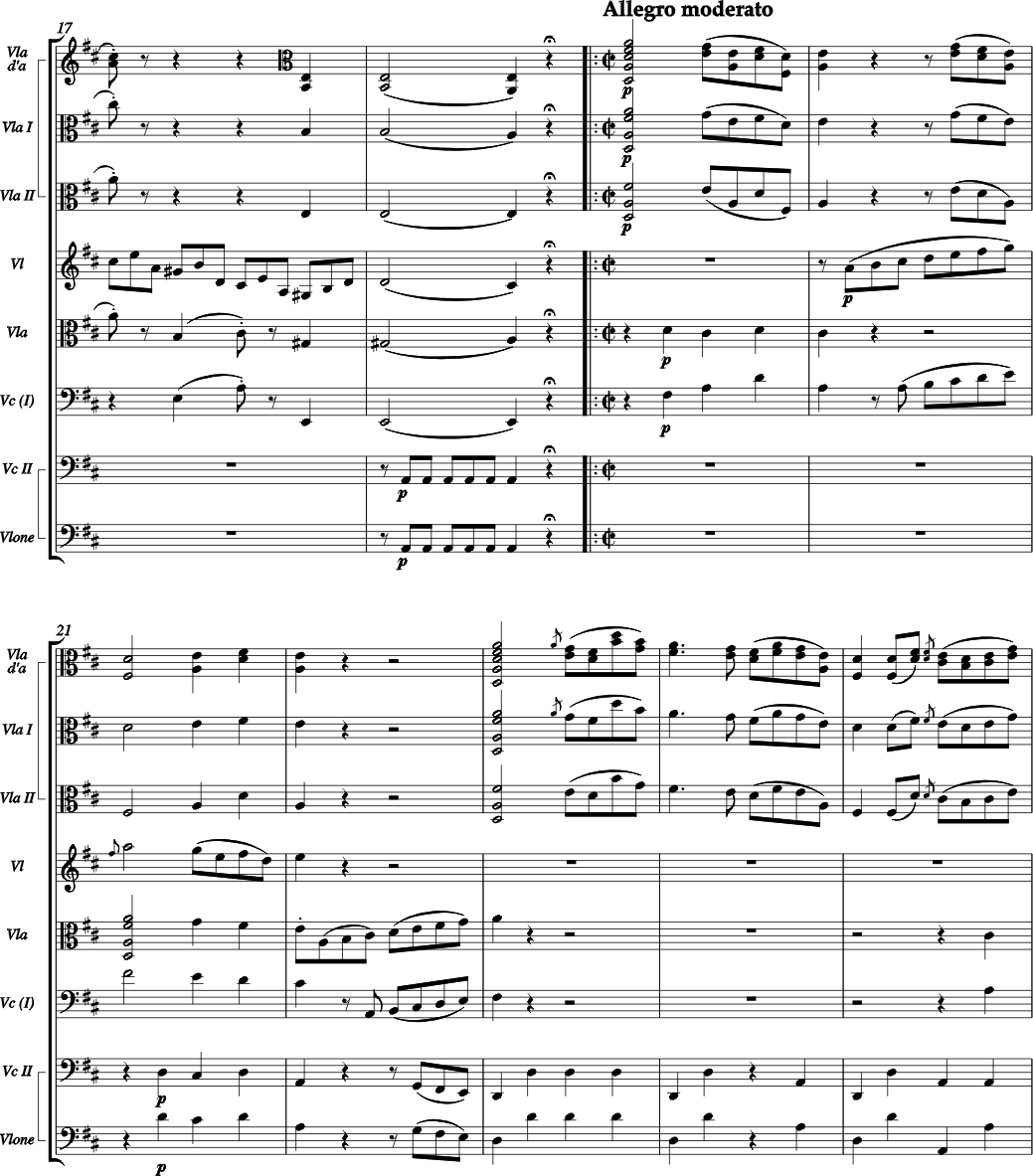
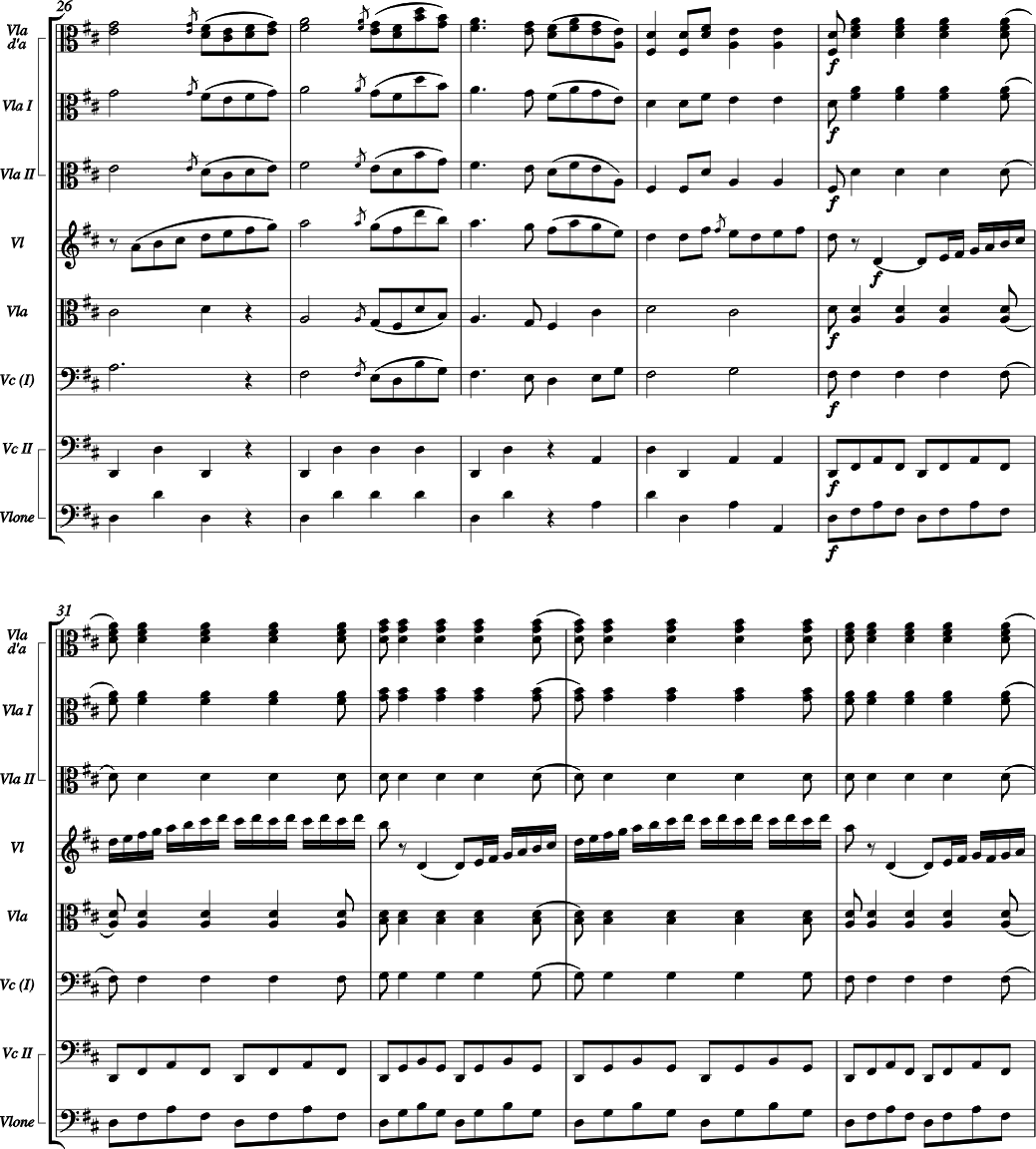
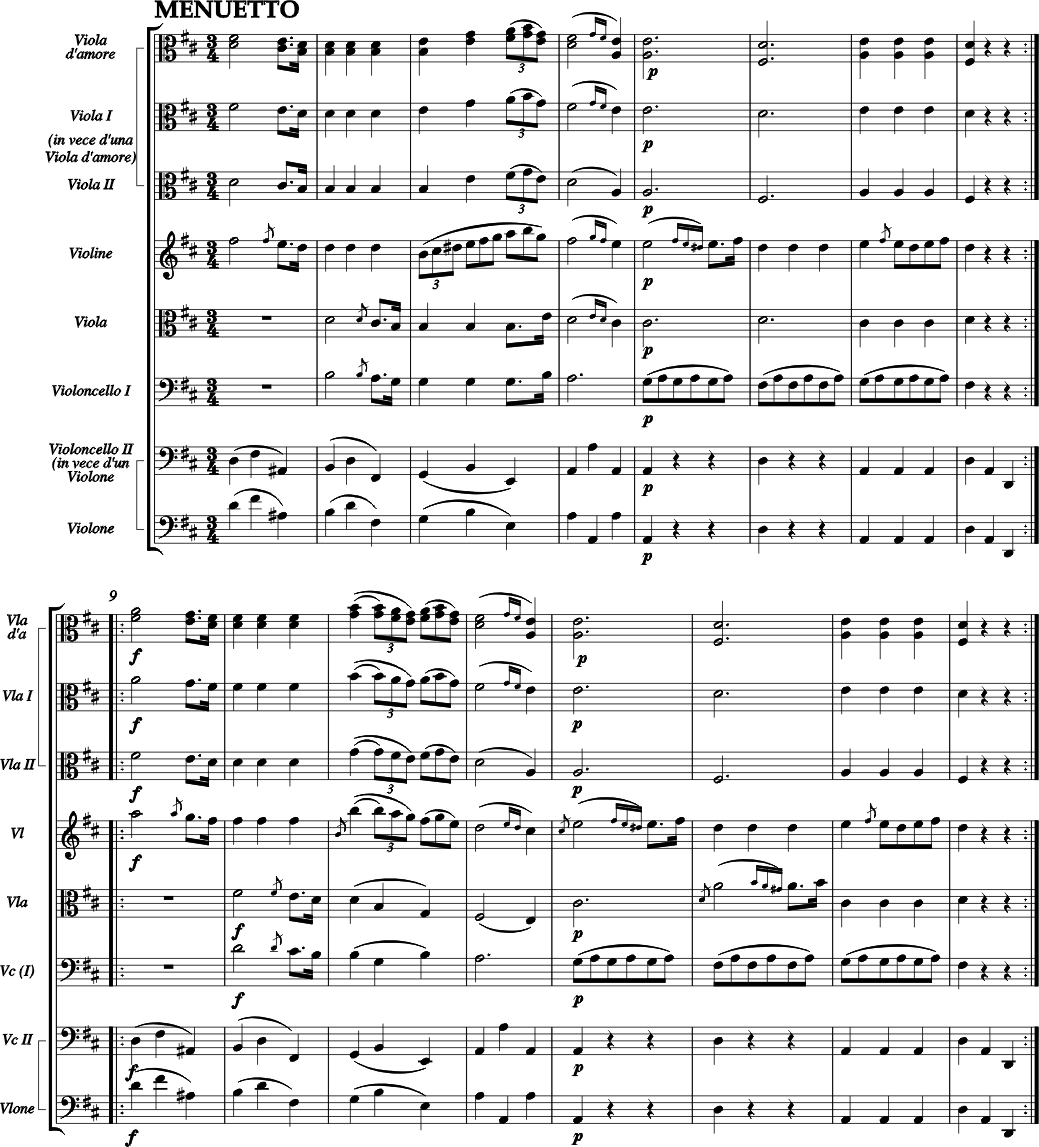
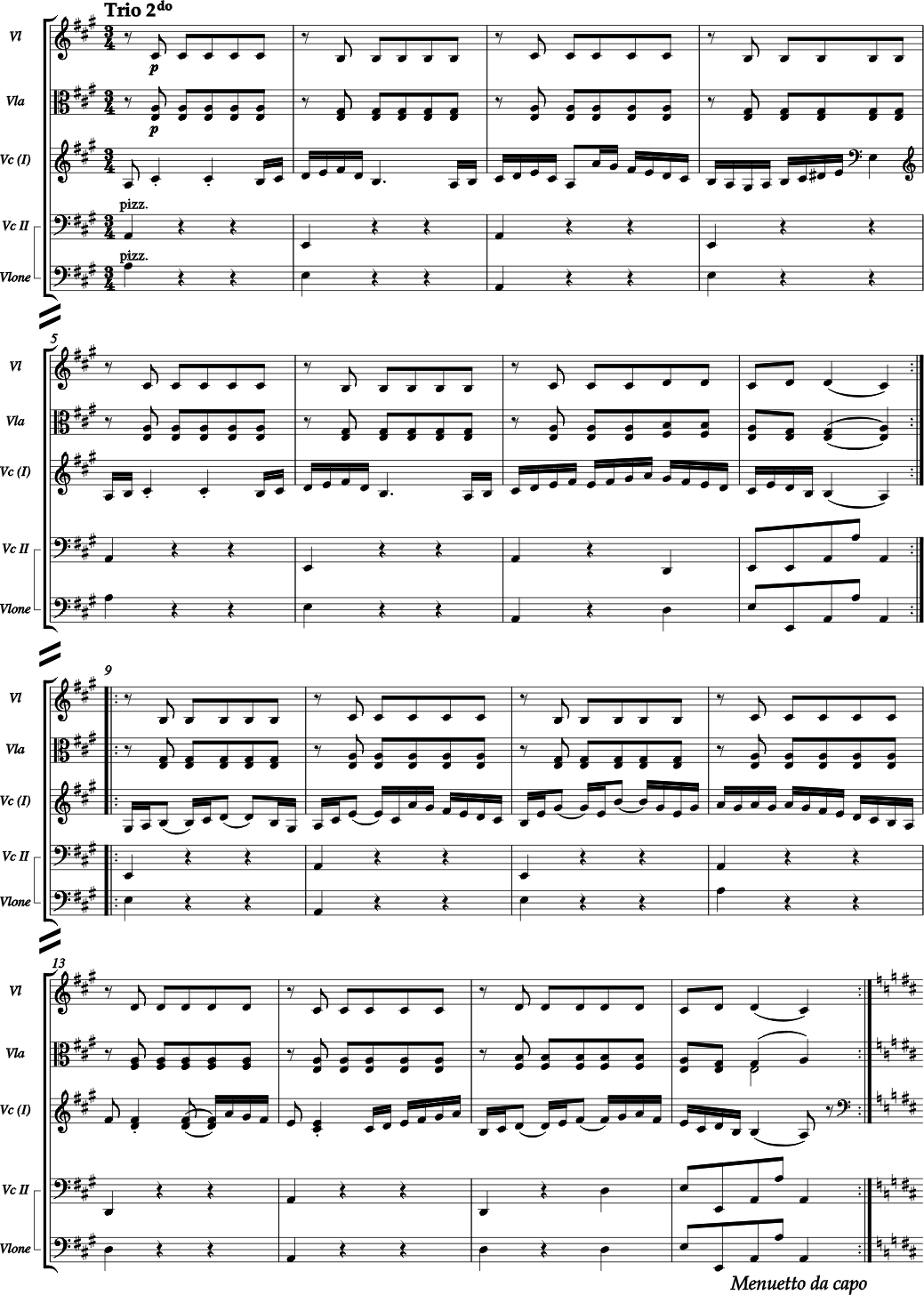
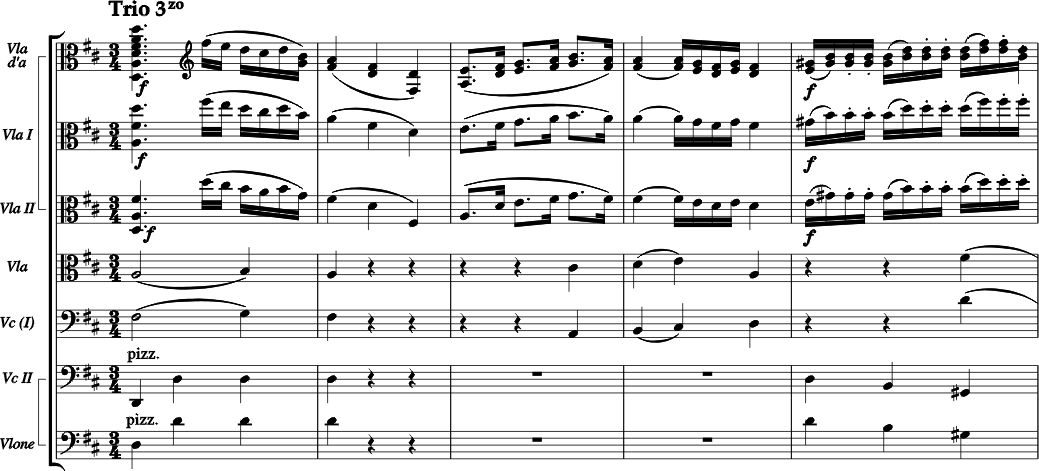
Joseph Leopold Edler von Eybler (1765-1840),
geboren und gestorben in Wien und auch nur dort tätig, war einvielseitiger
Musiker („er ist überdies einer unsrerer vorzüglichsten Waldhornisten,
auch spielt er die Bratsche und verschiedene andere Instrumente, auch
das Baryton“), dazu ein geschätzter Komponist und Dirigent (Vizekapellmeister
neben Salieri, dann 1. Kapellmeister), aber auch ein Staats-Offizialbeamter
der Kaiserin Maria Theresia. Ein Schlaganfall beendete seine Laufbahn
während der Leitung von Mozarts Requiem.
Seine erste musikalische Ausbildung erhielt er vom Vater; dann war er
Schüler von Johann Georg Albrechtsberger und Joseph Haydn. Mit Mozart
pflegte er engen Kontakt. Albrechtsberger bezeugt, "daß er nach Mozart
in der musik jetzt das größte Genie sei, welches Wien besitze".
Er schrieb mehr als 100 kirchenmusikalische Werke, eine Oper, zwei Oratorien,
Chöre und Lieder, ein Ballett, viele Deutsche Tänze und Menuette mit Trios,
ein Klarinetten- Konzert, Divertimenti, Quintette und Quartette und Sonaten
für Streichinstrumente.
Darunter auch zwei "Quintetto à Viola d' amore, Violino, Viola, Violoncello
e Violone del Sign. Giuseppe Eybler". Beide lassen im Original Alternativ-Besetzungen
zu: Viola d' amore oder 2 Violen, Violone oder 2. Violoncello (was eine
Sextett-Besetzung erfordert).
Vom Quintett I (nach der Londoner Zählung) gibt es auch eine Fassung für
Viola concertante, Violine, zwei Violen di ripieno, Violoncello und Violone
in der Wiener Stadtbibliothek (Ms: A-Wst-MH 10035/c), um einige Sätze
erweitert.
Die beiden Viola d`amore-Quintette existieren in zwei Handschriften:
Eine befindet sich im Benediktinerstift Melk a. d. Donau: A-M-V/505 [I.
nach Lbm] und V/504 [II. nach Lbm], Schreiber [?]: E.M. (angeschafft)
1823, je 7 Stimmen. Die andere wird im British Museum London aufbewahrt:
GB-Lbm-Add. 31005A(I.) und Add. 31005B(II.), je 7 Stimmen; "Am 7.Oktober
1855 von Sekzionsrathe im Ministerium des Äußeren v. Eybler, dem Sohn
des Compositeurs, zum Geschenke erhalten. Sign. Wagner." "Presented by
C. Zoeller....., 5 Apr. 1879".
Beide Manuskripte stimmen im Notentext überein; die Melker Manuskripte
sind mit Phrasierungen und Bogenstrichen wesentlich sparsamer als die
Londoner Manuskripte.
Die vorliegende Ausgabe des II. Quintetts/Sextetts (Londoner Zählung)
vereinigt die Phrasierungen und Bogenstriche beider Manuskripte und ergänzt
sie analog.
Joseph Leopold von Eybler (1765-1840), an aristrocrat, who was
born and died in Vienna worked exclusively in this town, being a very
versatile musician ("furthermore he is one our our most outstanding French
horn players and also plays the viola and other instruments" - also the
baryton"). He was an esteemed composer and conductor (vice leading conductor
next to Salieri who then was Leading Conductor). Apart from all this he
served his Empress Maria Theresia in his function as official civil servant.
A stroke put an end to his career while he was conducting Mozart' s Requiem
in 1833.
He took his early musical steps with his father; lateron he became
a pupil of Johann Georg Albrechtsberger and Joseph Haydn. He was in close
contact with Mozart. Albrechtsberger states that "after Mozart he is now
the greatest genius we have in Vienna ".
His oevre includes more than 100 compositions for the church, one
opera, 2 oratories, choruses, songs, one ballet, quite a number of German
dances and menuets with trios, a clarinet concerto, divertimenti, quintets,
quartets and sonatas for strings.
Among the quintets we find two "Quintetto à Viola d' amore, Violino, Viola,
Violoncello e Violone del Sign. Giuseppe Eybler". The original score permits
alternative scores for : Viola d' amore or 2 Violas, Violone or 2nd Cello
(which requires a sextet).
The Quintet No. 1 (according to the London counting) was also noted down
in a version for Viola concertante., Violin, two Violas di ripieno, Cello
and Violone and was extended by a number of movements. (Library of the
City of Vienna: Ms: A-WST-MH 10035/c).
There are two manuscripts of the Viola d' amore quintets, one to
be found in the Benedictine Monastery Melk an der Donau: A-M-V/505 [I.
acc. to LBM] and V/504 [II. acc. to LBM], writer [?]: E.M. (purchased)
1823, 7 single parts each. The other one is kept in the British Museum
of London: GB-Lbm-Add. 31005A(I) and Add. 1005B(II), 7 single parts each;
"Am 7.Oktober 1855 von Sekzionsrathe im Ministerium des Äußeren v. Eybler,
dem Sohn des Compositeurs, zum Geschenke erhalten. Sign. Wagner." * "Presented
by C. Zoeller....., 5 Apr. 1879".
* Document of receipt: Donated on October 17, 1855, by von Eybler, Ministerial
Officer in the Ministery of Foreign Affairs and son of the composer. Signed
Wagner.
Both manuscripts are identical regarding the musical text. The manuscript
in Melk shows significantly less phrasings and bows than the one in London.
In the present issue of the 2nd quintet/sextet (acc. to London counting)
the phrasings of both manuscripts are combined and supplemented accordingly.
nächste Seite / next page / prochaine page / prossima pagina >>
Fenster schließen
- Close Window - Fermer la fenêtre - Chiudi la finestra